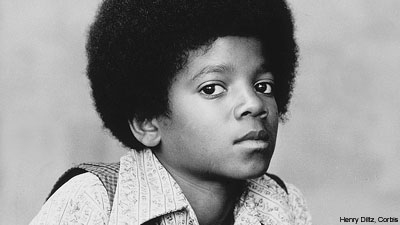podcast 174 – The First Sirmian creed (351)
In the reign of Constantius II yet another council offered language to replace Nicea…
In the reign of Constantius II yet another council offered language to replace Nicea…
“The Lord created me at the beginning of his work, the first of his acts of long ago.” Is this famous passage in Proverbs 8 about the pre-human Jesus?
Apologetics is hard, because it’s hard be an expert on more than a few subjects. There’s a strong pressure to just recycle bad arguments and wrongheaded claims propounded by other apologists.
With this episode we continue our series on the 4th-century creed-producing councils of catholic bishops.
The Social Trinity may be more social than you thought. In this episode I talk with trinities contributor Mr. Chad McIntosh about his new twist on a “social” Trinity theory – that not only are there three divine persons or selves, but in another but related sense, the Trinity is a person, what he calls a functional person.

Up to this point in Book 3 Richard has told us several things about love (caritas). We have wondered at his saying there isn’t a perfectly good person if he doesn’t love. We have sorted through some necessary conditions for love such that we wonder whether a perfectly good person p must love another person q if p is to be perfectly good. You might say we’ve been contemplating some divine ethics, or aesthetics, or whatever.
In the previous post I suggested how we might interpret what Richard means by saying (two) divine persons are equal and similar to one another, namely the divine persons have the same disposition of love and the same acts of love (see [T4’] and [T5’]). In the next part of Richard’s argument he returns to his metaphysics of the divine substance which he discussed in Books 1 and 2.Read More »Richard of St. Victor 7 – The Same Divine Substance (Scott)
In this series I’m going to get a bit more personal.
A thoughtful Baptist confronts his church about biblical vs. later teachings about God, Jesus, and heresy.
In this episode, Dr. Davis reads short selections from his 2006 book Christian Philosophical Theology (Oxford University Press). As he said in our interview, this book is probably the best place to look for his mature views. Hopefully Oxford University Press will someday release this in paperback and electronic versions. He addresses John Hick’s and others’ “minimal christology” on which Jesus is merely a wise teacher,… Read More »podcast 41 – Stephen T. Davis’s Christian Philosophical Theology
His views seem to have been those of present-day biblical unitarians.
Does unitarian Christianity “deny the Divinity of Christ,” preach “morality,” and teach salvation by works?
Now, to resume our drawn out and often-stalled series on Richard of St. Victor, in which we blog through th e entirety of book III of his De Trinitate (On the Trinity), in which he famously / notoriously argues for the Trinity from reason alone. These chapters, like many preceding ones, are too compressed, so I’ll try to unpack them for us.
e entirety of book III of his De Trinitate (On the Trinity), in which he famously / notoriously argues for the Trinity from reason alone. These chapters, like many preceding ones, are too compressed, so I’ll try to unpack them for us.
In chapter 23, Richard says that between the members of the Trinity “there seems to be more identity [sameness] than equality.” (p. 395) He then cites as an example three indistinguishable golden statues. Because they’re indistinguishable, we say they are “equal”. But there are three masses of gold involved, and so there are really three things here, three statues. But the case of the Trinity is different, he urges. How? Because “whatever is in any one person of the Trinity, the smae is also completely in any other person.” Here, he implies, we do have a deeper kind of “identity” or “sameness”.
I take it that Richard’s point is that the three Persons of the Trinity don’t differ as far as their composition, because each contains one and the same divine nature, here thought of as a particular.
He then brings up a case of “three rational spirits”, three souls. Read More »Richard of St. Victor’s De Trinitate, Ch. 23
In this talk from the 2016 Theological Conference, Pastor Sean Finnegan discusses the biblical data about why Jesus died, and lays out seven options for understanding Jesus’s unique atonement.
Do our earliest surviving post-New-Testament writings interpret Proverbs 8 as being about the pre-human Jesus?
I have gone through all six. Which stage are you at, and what is keeping you from moving to the next?

I recently stumbled upon a great post by Michael Patton that just about perfectly expresses how I’ve felt about Christian apologists since growing past teenagerhood.
In part:
This is the problem that I have with some apologists (those who defend the faith). Don’t get me wrong, I believe very much in apologetics and also love many apologists. But very rarely do I find a reasonable apologist. Most are very hardened because they are committed first to defending their particular position, not so much to learning.
Read the whole thing. He also has done a similar post recently.
I would add: apologists too often fall into mere rhetorical violence: hyperbole, attacking a straw man, verbal aggression, smug, acid condescension, simply repeating oneself more loudly, insults, poisoning the well, and so on. And this is leaving aside poorly constructed arguments. Sadly, debates between philosophers (one or both of whom may be atheists) are nearly always “cleaner” (more reasonably and respectfully conducted) than your average debate between a Christian apologist and anyone else.
I’m always reminded of what James says:Read More »Patton’s problem with Apologists
Some interesting comments on philosophy and philosophers by Nigel Warburton, one of the two hosts of the best philosophy podcast, in an interview on the occasion of his resigning his academic post. …that’s just the nature of philosophy. It’s always difficult… If you’re not having trouble then you probably don’t really understand what’s going on. Many people seem not to have trouble, but I know… Read More »Nigel Warburton on contemporary philosophers
How and why did American Unitarian Congregationalism die?
This “Fourth Creed” was offered as a non-controversial, “big tent,” ecumenical summary of faith. And surprisingly, given its initial reception, its language ended up being re-used several times after, as catholics struggled to replace the language of Nicea with something more widely acceptable.
In this recent book, Dr. Winfried Corduan re-opens the case for “original monotheism,” the view that the forms of human religion which are probably the oldest, are mostly monotheistic, which is what one would expect if the earliest human religions were all or mostly monotheistic.